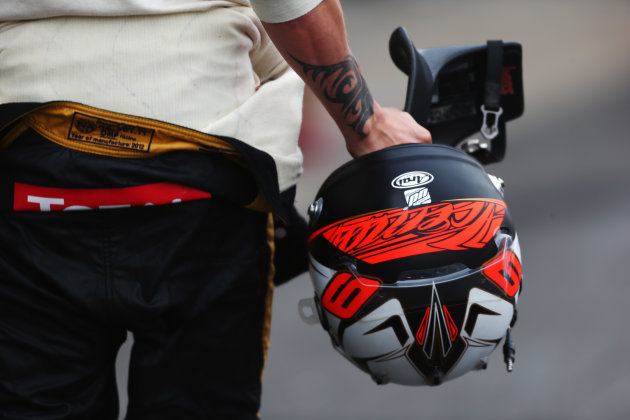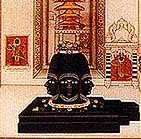MONACO (Reuters) - Kimi Raikkonen would much rather be left alone but he is happy to admit that sometimes he does not know what he is doing.
Social media is never going to be the Finn's thing and the Lotus driver has never hidden his distaste for interviews but he overcame his reluctance and spoke to Reuters at the Monaco Grand Prix - albeit stressing: "That's not the reason why I am here.
"I am here for driving and racing and to try to win races and it's as simple as that," added Formula One's 2007 world champion and current title contender, his penetrating gaze shielded by sunglasses even inside the team motorhome.
Raikkonen's directness, his refusal to play the PR game and pretend to be someone he is not, may not have endeared him to all his sponsors over the years but his army of fans would not have it any other way.
They love the party animal who wants to be left alone, the technophobe who earns his living in the most technologically advanced sport in the world, the snowmobile racer and James Hunt fan with 'Iceman' tattooed in gothic script on his left forearm.
Beneath the taciturn exterior, and behind the growling monosyllabic replies in group interviews, Raikkonen is a racer who could be leading the championship after the weekend and is on course to chalk up his 23rd successive race in the points - one short of Michael Schumacher's all-time record.
LEAVE ME ALONE
On his way to victory in Abu Dhabi last year, the 33-year-old added to the legend that is Kimi Raikkonen by telling his race engineer over the radio in decisive terms to "leave me alone, I know what I'm doing".
The outburst spawned T-shirts and mugs with the phrase on it, one of the latter proudly owned by Frank Williams who tried to sign the Finn for his eponymous team in late 2011.
For many it has become Raikkonen's motto, but he does not see it that way.
"It's not that. For sure, sometimes I don't know what I am doing," he laughed, perhaps mindful of those old photographs of him drunkenly embracing an inflatable dolphin outside a nightclub or powerboat racing in a gorilla suit.
"But that happens to everybody. The whole story came out of proportion. It was a normal thing.
"It sounds like we are shouting, because the radio is not very good and you will shout as loud as you can to make sure that they hear what you say. It happens always. I am not a big fan of getting messages. I am sure I will ask if I need something.
"For sure it has happened in a Ferrari and a McLaren," he added. "I said many things but on those days you didn't get them on TV. Even now you get often in the races some odd things coming through but they don't put it in a live form for whatever reason. It's not like a new thing for the team."
That Raikkonen is not a big fan of unnecessary communication becomes even more evident when he is asked about other drivers' willingness to post photographs and put their private lives on display through social media.
"I don't use Facebook. If I could throw my phone away I would probably do it," he said. "It's always on silent and I don't like when it rings and people are calling.
"We could live without those things in the past when we just had a phone on the street somewhere, on the corner or at the house. I have no interest in telling all the people what I do every day and where I am.
"I want to do my stuff privately with my friends or family and that's it."
Surrounded by a backdrop of floating palaces swaying in the harbour, the Monaco Grand Prix tops the list of favourite races for many Formula One drivers.
Not Raikkonen.
An ideal race weekend, he suggested, would be at the Magny-Cours circuit in the heart of rural France - a now discontinued date on the calendar and unloved by sponsors and corporate types due to the dearth of hotels and nightlife.
"That was pretty nice. There were no people. The hotel is next door and it's a pretty good place. I always enjoyed it there. It was purely racing and not a big hassle," said Raikkonen.
The winner of the season-opening Australian Grand Prix is just four points behind Red Bull's triple world champion Sebastian Vettel after five of the 19 races and hitting the sort of form that brought him the title as a Ferrari driver.
Next season, he could even end up as Vettel's team mate if some of the paddock speculation is to be believed. Raikkonen is out of contract at the end of the year and was backed by the energy drink company when he quit F1 and switched to rallying at the end of 2009.
The Finn recognised he had options other than Lotus, who hope to keep him, but said having the best car would only be part of the equation when he came to decide.
WINNING CAR
"You always want to have a winning car but there is no guarantee that it will be," he said, mindful of the sweeping technical changes being introduced for 2014.
"Obviously they (Red Bull) have created a very good car for many years but we don't have such a bad car either so we cannot really say that if you go there it is certain that you will get the best car and will win always," he added.
"I think it is more the overall picture, that you have to have a good feeling in every aspect. You have to have a normal life, you have to have certain things in a certain place and it can be a small thing.
"It's just some simple thing that gives you overall happiness on all the things and how the life goes overall. That will make a difference and be the biggest effect on whatever the decision is."
Raikkonen entered Formula One with Sauber in 2001, with the then-president of the governing FIA Max Mosley concerned that the rookie lacked the experience to be granted the mandatory super-licence.
By the end of the year he was a McLaren driver, replacing double world champion compatriot Mika Hakkinen.
One more race win now would take Raikkonen's career tally to 21 and make him the most successful Finnish driver, in terms of grand prix wins.
Not that such statistics matter too much to him.
"I have already achieved something that I always wanted and anything I get more is nice," he said. "Of course we want to win more championships but if it doesn't happen or we don't get fastest laps or wins or whatever it will not change my life.

